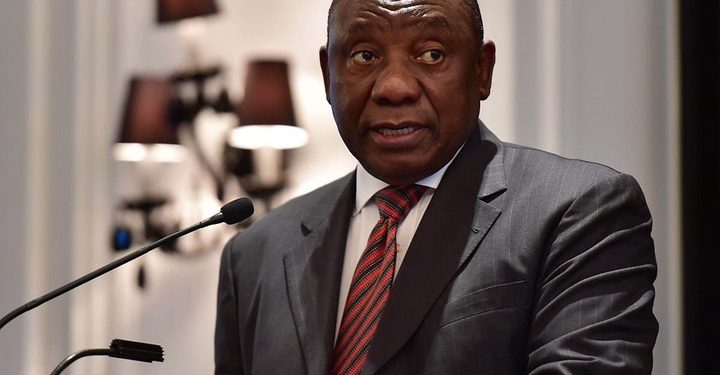President Cyril Ramaphosa has broken his silence on his unexpected encounter with Donald Trump in the White House last week, describing the moment the former US president dimmed the Oval Office lights to play a controversial video as “bemusing.”
Speaking at an infrastructure conference in Cape Town on Tuesday, Ramaphosa joked about the déjà vu he felt when the room lights dimmed during his entrance—a playful nod to Trump’s surprise move during their meeting.
“When I came in, I saw the room going a bit dark,” Ramaphosa told the audience. “For a moment, I wondered, what is this? Is it happening to me again?”
The incident unfolded during Ramaphosa’s visit to Washington last week, where he sought to shield South Africa from potential US trade tariffs. The meeting took an unexpected turn when Trump abruptly called for the lights to be lowered to screen a video amplifying his disputed claims of “white genocide” in South Africa—a narrative repeatedly debunked by crime statistics and land reform experts.
“I was seated very nicely, getting into a groove of interaction, and suddenly I hear him say, ‘Dim the lights,'” Ramaphosa recounted. “Some have called it an ambush. I was bemused—just thinking, what is happening?”
The meeting marked their first face-to-face discussion amid months of strained relations, fueled by Trump’s freeze on US aid to South Africa over his farmer persecution claims and his criticism of Pretoria’s genocide case against Israel at the ICJ.
Despite the awkward moment, Ramaphosa framed the visit as a success, citing progress in discussions about a potential new trade deal. He also expressed confidence that Trump would attend the G20 summit in Johannesburg later this year—a critical diplomatic event before South Africa hands the forum’s presidency to the US.
The encounter follows the controversial evacuation of 49 Afrikaners to the US under refugee status, a move tied to Trump’s unsubstantiated claims about land seizures and violence against white farmers. Official data shows no state-led land confiscations since 1994, with violent crime disproportionately affecting Black South Africans.
Ramaphosa’s lighthearted retelling downplayed tensions, but analysts note the underlying diplomatic tightrope South Africa walks as it balances relations with the US, its second-largest trading partner, amid geopolitical disagreements.






















